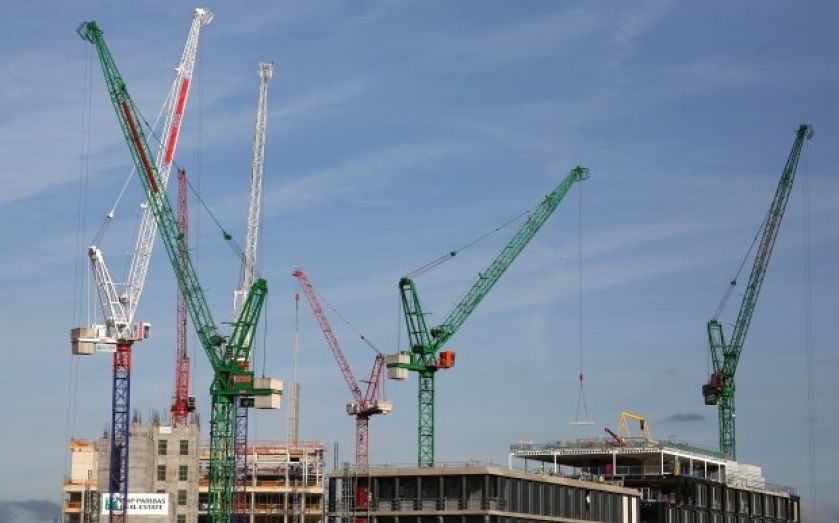Strange things are happening to the UK’s construction sector

Construction is still hollowed out from the financial crisis, and has suffered two major recessions – so why are builders finding hiring so difficult?
Despite solid growth in the last 12 months, the sector is still more than 10 per cent shy of its previous output peak.
The recession was deeper than for services and manufacturing, as house price growth hobbled the private industry and an emaciated public infrastructure budget.

What’s more, the double-dip recession long since cheerfully revised away was a painful reality for builders, whose output dropped by more than a tenth again during a five-quarter slump in 2011 and 2012.
Given the extent to which the sector’s output has shrunk, it’s odd that just over half of builders are telling the Institute of Chartered Accountants in England and Wales (ICAEW) that their firms are operating below capacity – fewer than a number of services sub-sectors where the recovery is more advanced, and far below manufacturing, which has also struggled over the last six years.

There were 2.12 m people working in construction at the end of 2013 – about 90,000 more than the low point at the end of 2010. But if the sector is to return to (and eventually surpass) peak employment levels, it will need to recruit at least another 230,000 people – no small feat.
So it’s similarly concerning that construction firms are indicating an increasing challenge in finding skilled management-level staff, more than in any other sector, with nearly as much difficult in finding non-management employees.

The ICAEW aren’t the only organisation to notice this trend – the Royal Institute of Chartered Surveyors has repeatedly reported the same trend. A parliamentary report produced by the Chartered Institute of Building points to “looming skill shortages”.
What’s actually happening in the industry is worthy of a much more detailed study, but it could be that the UK’s builders have been hit by a sort of sector-specific hysteresis – during the long period of stagnant or slumping output workers may have left the sector for others entirely, or joined the sadly growing ranks of the long-term unemployed.
If the latter was true, workers might become de-skilled, explaining why firms are finding it hard to recruit despite the fact that unemployment is relatively elevated. But this effect doesn’t seem to have hit other sectors so hard – though manufacturers are showing some signs of a similar trend.
This is worrying for the UK in general, since there is no shortage of demand for new house building, and a continued recovery should make firms more confident in investing in property.
But it could be good news for construction workers in the short term – an insufficient supply of labour could give them a better bargaining position on wages. If businesses are struggling to find skilled workers, they’ll likely be looking to keep the ones they have. Earnings in the sector rose by 3.1 per cent in the year to February, an above-inflation hike and a tentative indicator that pay may rise more quickly than in other sectors.